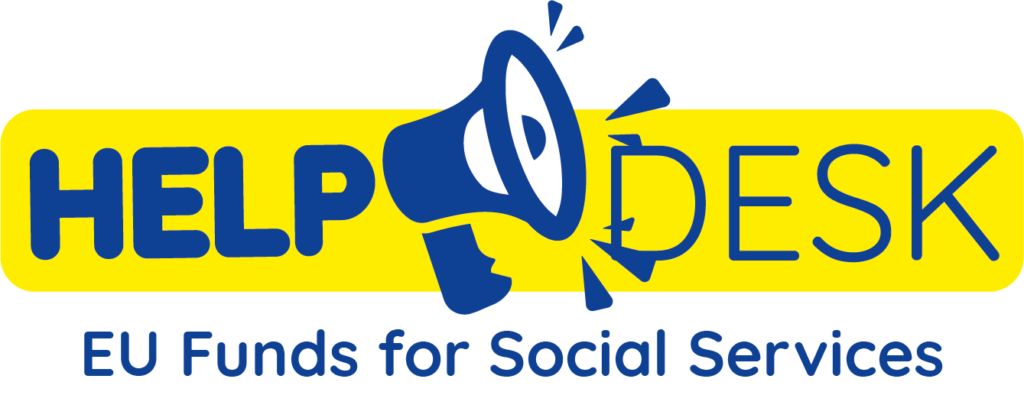1. Partnership agreement EC – Denmark 2021 - 2027
The Partnership Agreement between Denmark and the European Commission on EU funds from 2021 to 2027 outlines how the national authorities plan to use the funding from the European Regional Development Fund (ERDF), the European Social Fund+ (ESF+), the Just Transition Fund (JTF), and the European Maritime, Fisheries and Aquaculture Fund (EMFAF). The agreement was published on May 25th, 2022 and outlines the use of 808 million euros, equivalent of approx. DKK 6 billion.
The funds are primarily targeted at supporting growth, productivity, and competitiveness of small- and medium sized enterprises (SMEs) as well as employment and green transition across the country with the following selected political ambitions. Investments in these policy objectives are expected to have the greatest potential in Denmark:
- Policy objective 1, “A more competitive and smarter Europe“: Improving the research- and innovation capacity of SMEs, improve their growth and competitiveness, and take greater advantage of the benefits of digitalization.
- Policy objective 2, “A greener and more robust Europe”: Increasing the innovation capacity of SMEs – including their use of advanced technology – towards green transition. This concerns clean and efficient energy production and use, sustainable transportation, and research and innovation activities.
- Policy objective 4, “A more social and inclusive Europe”: Strengthening the quality, efficiency, and labour market relevance of education and securing flexible re-training, upgrading of skills, and continuing education in light of the new demands for green transition. This is also to address the challenge that enterprises are lacking skilled labour while some adult are still outside the labour market.
- Policy objective 5, “A Europe closer to the citizens”: Promoting an integrated and inclusive social-, economical-, and environmental development including culture, natural heritage, sustainable tourism, and safety in urban areas. This should secure that medium-sized towns (4,000-20,000 inhabitants) have a sufficient supply of jobs, stores, and cultural offerings.
The Danish Business Authority (Erhvervsstyrelsen) manages ERDF, ESF+ and JTF. The Ministry of food, agriculture, and fisheries manages EMFAF.
Introduction ERDF and ESF+ 2021 – 2027
ERDF
The Danish Board of Business Development (Erhversfremmebestyrelsen) was established in 2018 to prioritize – together with local, regional, and national actors – the decentralized initiatives under the Danish regional business policy for growth and development including the funds of the ERDF. The Board consists of members from larger companies, elected politicians from municipalities and regions, as well as a representative from an employers’ organization, from an employees’ organization, and from the Ministry of Industry, Business, and Financial Affairs respectively.
The ERDF is receiving approx. DKK 1.8 billion. 55 % of the funds should be allocated towards policy objective (PO) 1, 30 % to PO2, at least 8 % should be allocated towards sustainable urban development, and at least 8 % for PO5. These ambitions are elaborated in the National Programme for ERDF: “Strong enterprises through innovation, digitalization and green transition” (in Danish). ERDF seeks to:
- Promote circular economy
- Strengthen the enterprises’ innovation capacity and development of new solutions
- Strengthen enterprises’ competitiveness
- Develop a welfare technology position of strength
- Promote sustainable development of living city centres in small and medium-sized cities
- Attract private investments through tourism infrastructure development
- Drive the digital transformation of the enterprises
ESF+
The ESF+ is also managed by The Danish Board of Business Development.
The ESF+ is receiving approx. DKK 891 million. At least 25 % of these funds should be allocated towards initiatives for social inclusion and at least 3 % should be allocated towards efforts for the socially disadvantaged. In addition to this, the Danish government has decided to allocate 20 % of the funds for strengthening the effort of the regions in the field of education, which means that the five Danish regions can suggest how to spend these funds. The ESF+ focuses primarily on PO4 and the political ambitions are elaborated in the National programme for ESF+: “A stronger Denmark through education and skills” (in Danish), which has seven objectives:
- Get more people to complete vocational training or higher education
- Raise the competences of the workforce through targeted and flexible continuing education
- Promote entrepreneurship
- Include and retain citizens in the labour market
- Ensure that young people have skills that prepare them for the future
- Support equal access to education
- Promote the social integration of citizens who are homeless or at risk of homelessness
2. Policy choices
ERDF
ERDF seeks to contribute to PO1, “A more competitive and smarter Europe”, by promoting the introduction of new products and solutions among SMEs, their competitiveness (turn-over, jobs, export, and productivity), and by increasing the relevance of the online business helpdesk Virksomhedsguiden.
ERDF will contribute to PO2, “A greener and more robust Europe”, by promoting a transition to circular economy via partnerships between SMEs and public authorities. This should seek to decrease the emissions of CO2 and other greenhouse gases, reduce waste and increase recycling of waste. A part of this is a green research strategy for investments in green research, technology and innovation, adopted by the Danish Government. It has four specific research missions in areas where there are particular needs to accelerate the development of new solutions to reach the goal of a climate neutral Denmark in 2050. These are:
- Capture and storage or use of CO2 (carbon capture)
- Green fuels for transportation and industry (Power-to-X)
- Climate- and environmental-friendly agriculture and food production
- Circular economy with a specific focus on plastic and textile
These missions should be solved in green partnerships between the research sector, the business community, and authorities in a long-term strategic effort, which will not only strengthen the leading position of Danish companies within green technology but also reduce greenhouse gas emission. It thus targets PO1 as well as PO2.
The Danish government launched a plan in 2020 outlining a green transition of the construction sector. With this back-drop, the ERDF will promote sustainable and integrated development of cities, rural- and coastal areas by investments in tourism development including infrastructure. It seeks to support a tourism sector that is more sustainable, financially as well as in terms of climate and environment. ERDF will support investments that combine sustainability, aesthetics, and inclusion with the new European Bauhaus initiative to find solutions to climate challenges with architecture that is both attractive and financially viable.
ERDF contributes to PO5, “A Europe closer to the citizens“, by supporting strategic partnerships, which can develop city centres and secure needed competencies for local businesses so they have a better foundation for developing sustainable urban environments. Likewise, some cities will receive funds for physical developments.
ESF+
ESF+ seeks to address PO4,”A more social and inclusive Europe”, by investing in initiatives that can introduce people on the edge of the labour market into a job. This allows them to financially support themselves, be part of a work community, and makes sure that companies can get the labour they need. In Denmark, many social initiatives are already in place and it is important that new investments seek to supplement the existing and planned initiatives. ESF+ will increase the number of people who obtain formal and informal qualifications, the number of people who start a business, and the number of people entering the labour market. This will be done via supporting equal access to education and integration of the socially disadvantaged. ESF+ will:
- Increase the qualifications of the workforce with more people completing vocational training and higher education
- Adjust the qualifications of the workforce via continuing training to better match the needs of the labour market especially in terms of digital skills and skills needed for the green transition
- Increase the number of start-up companies and secure their survival
- Increase the employment rate among people with no steady connection to the labour market
- Increase social integration of citizens who are homeless or in risk of becoming homeless
In this regard, the Danish government has decided to allocate 20 % of the ESF+ funds for the five regions to invest in education under two headlines: “Competencies for the future” and “Education for everyone”. This is to make sure that young people can meet the demands of the future labour marked in terms of digital and technological development as well as green transition but also to get more people interested in vocational training and natural sciences. This entails both strengthening the competencies that young people need to enter a secondary education but also securing their access to education no matter where they live. In order to include knowledge of local conditions and secure a coordinated effort between unions and employers’ association the regional Labour Market Councils (Regionale arbejdsmarkedsråd) are involved in this work.
ESF+ will contribute to PO1, “A more competitive and smarter Europe”, by making sure that SMEs have access to a well-qualified work force and needed competencies for boosting innovation capacity. Likewise, it contributes to PO2, “A greener and more robust Europe” with its specific focus on skills for green transitions, which is also believed to have a competitive advantage for Danish companies. In close cooperation with ERDF, ESF+ also invest in infrastructure for tourism, which intends to attract private investments. Many low-income jobs for unskilled workers are in the service sector, and it thus plays an important role in securing jobs.
3. Link to social services – objectives relevant to social services
The relevance of ESF+ to the social sector in Denmark is fairly limited as most of the funds are targeted at businesses, business hubs, or public or private organization with expertise on supporting entrepreneurship and/or tourism. The fact that the funds are administered by The Danish Business Authority, with the Ministry of Industry, Business, and Financial Affairs as the responsible ministry, underlines this. The social sector is managed by the Ministry of Social Affairs, Housing and Senior Citizens.
The 20 % of the funds allocated for the regional education efforts are more relevant to social services. See an example from the North Denmark Region here (in Danish). Ordinary education for the general public – in this case vocational training and higher education – is not considered (politically nor administratively) part of the social sector in Denmark. There may, however, still be relevant opportunities for social service providers – who have expertise on the inclusion of socially disadvantaged people into education or the labour market – to team up with institutions providing secondary education.
Most relevant to social service providers are the funds allocated for initiatives to address homelessness, which, in the most recent call, was administered by the Danish Authority of Social Services and Housing.
4. Useful resources
All information about the EU funds in question, as well as the Partnership Agreement, can be found here: Fonde | Udvikling i Danmark (erhvervsstyrelsen.dk) (there is a shortened English version of the site, choosing English in the bottom of the page).
All open and closed calls for projects can be found here: Ansøgningsrunder | Udvikling i Danmark (erhvervsstyrelsen.dk) (In Danish).
Co-funded by the European Union. Views and opinions expressed are however those of the author(s) only and do not necessarily reflect those of the European Union. Neither the European Union nor the granting authority can be held responsible for them.




